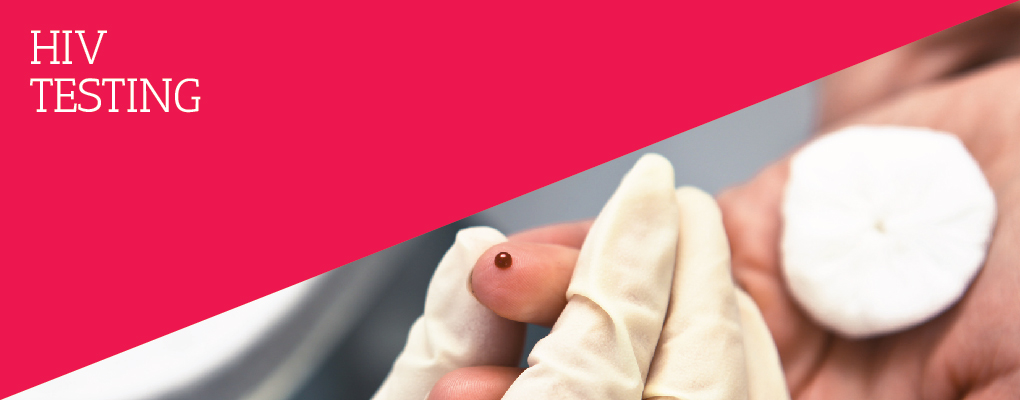STD, HIV Clinic Dubai, UAE
Hiv Testing Dubai
LIVING WITH HIV? WANT TO TALK TO US?
STD/STI Test & Treatment
Trusted care, since 2000
2nd December Street, P.O.Box 126590, Dubai - UAE.
© Copyright 2019-20 Cosmocare Medical Center. All Rights Reserved by Skin Specialist Dubai.

Preparation for STD tests:
- Fasting is NOT required.
- Urine test is a part of STD screen. Please come to the clinic without voiding urine for 1 to 2 hours.
- Initial stream of urine (beginning part of urination) is important for STD tests.
- Initial 10 ml of the urine that washes out the urethra is required.
- Avoid collecting more than 10 ml. Larger quantity will dilute the sample and may compromise the accuracy of test.
- Some STDs are tested regionally. For example, Chlamydia and Gonorrhea tested in genitalia will not reveal these infections in throat or rectum.
- Relevant sites should be tested independently based on the nature of the exposure.
What is Human Immunodeficiency Syndrome (HIV)?
HIV stands for Human Immunodeficiency Virus. When HIV attacks the body, it destroys specific immune cells needed to fight off diseases and infections. HIV resembles many other common illnesses, but there is a difference; the body is not able to get rid of HIV once it infects the immune system’s CD4+ or T-Cells. HIV can replicate over time --killing the host cells-- if not managed properly. HIV can lead to AIDS (Acquired Immune Deficiency Syndrome), but testing positive for HIV does not mean you have AIDS. It is possible to have HIV for many years, even decades, without developing or showing visible signs of the disease.
The only way to find out if you have HIV is to get tested. While there is currently no cure for the virus, there are medications that help HIV-positive individuals lead healthier lives. According to the CDC, about 1.2 million Americans live with HIV and approximately 250,000 people are currently undiagnosed and unknowingly living with HIV.
Are HIV and AIDS the same?
No, HIV and AIDS are not the same. HIV can lead to the development of AIDS. AIDS is the late stage of HIV infection when an individual's immune system is severely damaged and lacks the ability to fight off diseases and infections. Many people with HIV benefit from powerful medications used to treat the viral infection. These medications are designed to slow down the destruction of the immune system, improve the health of those with HIV and reduce their ability to transmit the virus to others.
How do I get tested for HIV?
Testing for HIV is simple. Cosmocare offers two FDA-approved HIV blood tests:
- Our HIV 4th Generation Antibody Test with Reflex to Western blot looks for the presence of HIV antibodies in the blood as well as HIV p24 antigens (HIV p24 antigens are viral proteins that make up most of the core of the virus. Blood serum concentrations of p24 antigens are high in the first few weeks after infection; therefore tests sensitive to p24 antigens are useful for diagnosing very early HIV infections when antibody levels are still low.). Our HIV 4th Generation Antibody Test can detect HIV antibodies as soon as 2-3 weeks after exposure. Most people will develop detectable antibodies within this time frame. We do recommend retesting at the 3 month mark for conclusive results.
- Our HIV RNA Early Detection Test looks for the HIV virus’ genetic material. We are the only online STD testing service that offers this revolutionary FDA-approved HIV RNA Early Detection Test. The HIV RNA Early Detection Test is highly effective at detecting HIV as early as 9-11 days after exposure.
Can doctors cure HIV?
At the moment, there is neither a cure for HIV, nor a vaccine designed to prevent HIV infections. However, HIV is manageable and treatable, and people live long lives as a result of powerful antiretroviral medications. These medications can slow down the virus and minimize its effects, especially if taken as directed by a doctor or HIV specialist.
Can anyone get HIV?
Anyone can contract HIV. Engaging in unprotected anal or vaginal intercourse, having multiple sexual partners, having an active STD, and intravenous drug use are considered high-risk activities for contracting HIV. HIV can also spread from a mother to her baby during pregnancy, childbirth or breastfeeding. Sharing needles, syringes, or other drug equipment can also put you at risk of contracting HIV. Despite misconceptions, saliva, tears, sweat, urine and fecal matter cannot transmit HIV.
Effects of untreated HIV
Undiagnosed and untreated HIV infections can potentially lead to death. If untreated, HIV can severely damage the immune system and make it nearly impossible for the body to fight other illnesses and infections, resulting in AIDS. People with compromised immune systems as a result of AIDS are vulnerable to other so-called "opportunistic" diseases, including cancers and various infections. The transition period from HIV to AIDS is different for each person, but when the immune system is compromised and worn down, it cannot fight off common infections and diseases. Pregnant women who do not get tested for HIV and treated have an increased chance of transmitting the virus to their unborn children.
Ways to prevent HIV infection
The surest way avoid HIV infection is abstinence and to not use intravenous drugs. If you are not willing to abstain from sex, you can help prevent HIV by using condoms during sex. Being in a monogamous relationship with someone who is not infected with HIV will also help prevent infection. Talking about sexually transmitted diseases (STDs) and getting tested with a new partner before engaging in a sexual relationship is another way to help prevent contracting HIV.
STD & HIV: Sexually transmitted infections increase the risk of HIV acquisition and transmission by fivefold. WHO. Report on global sexually transmitted infection surveillance. Geneva, Switzerland: World Health Organization 2013
© Copyright 2019-20 Cosmocare Medical Center. All Rights Reserved by Skin Specialist Dubai.

